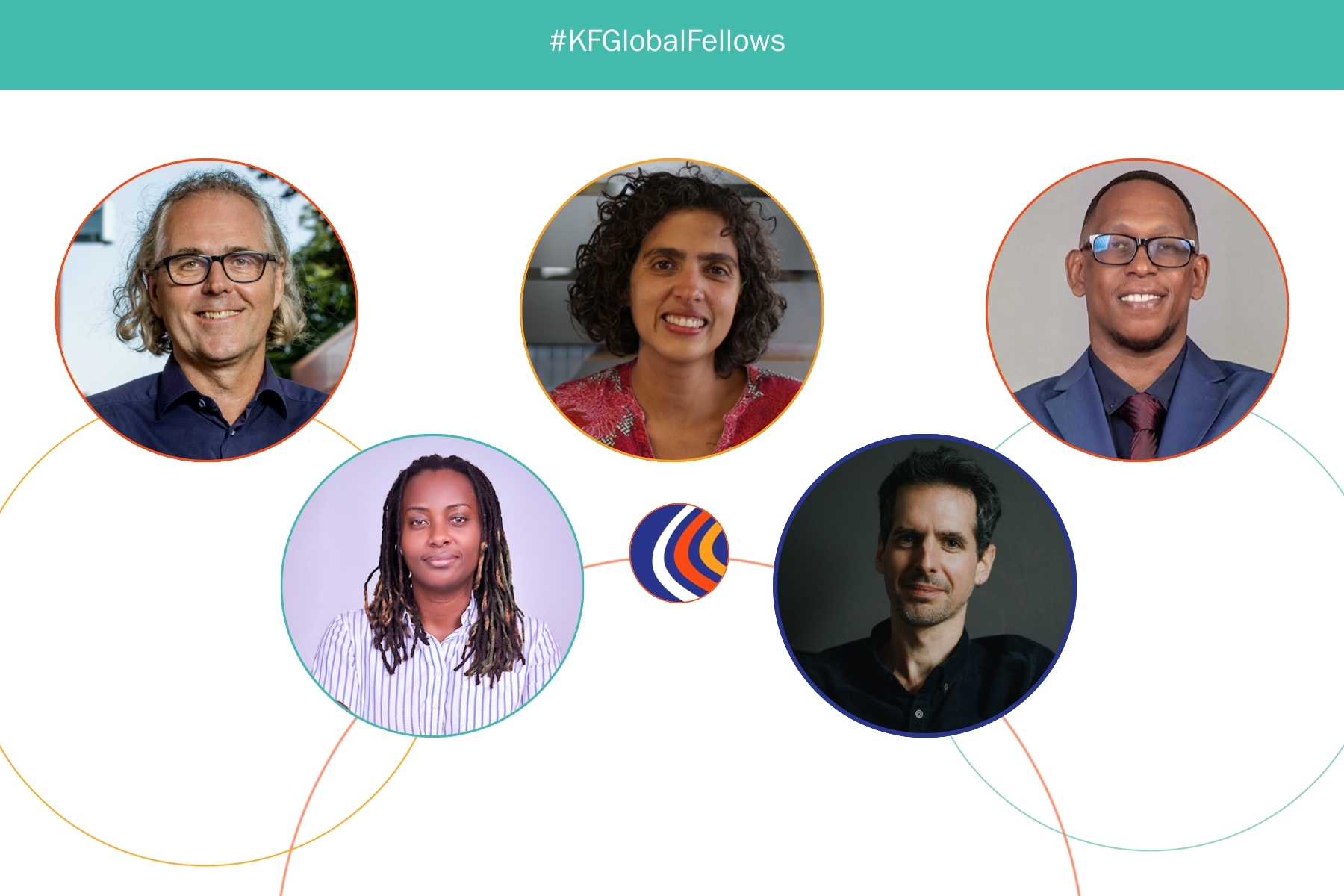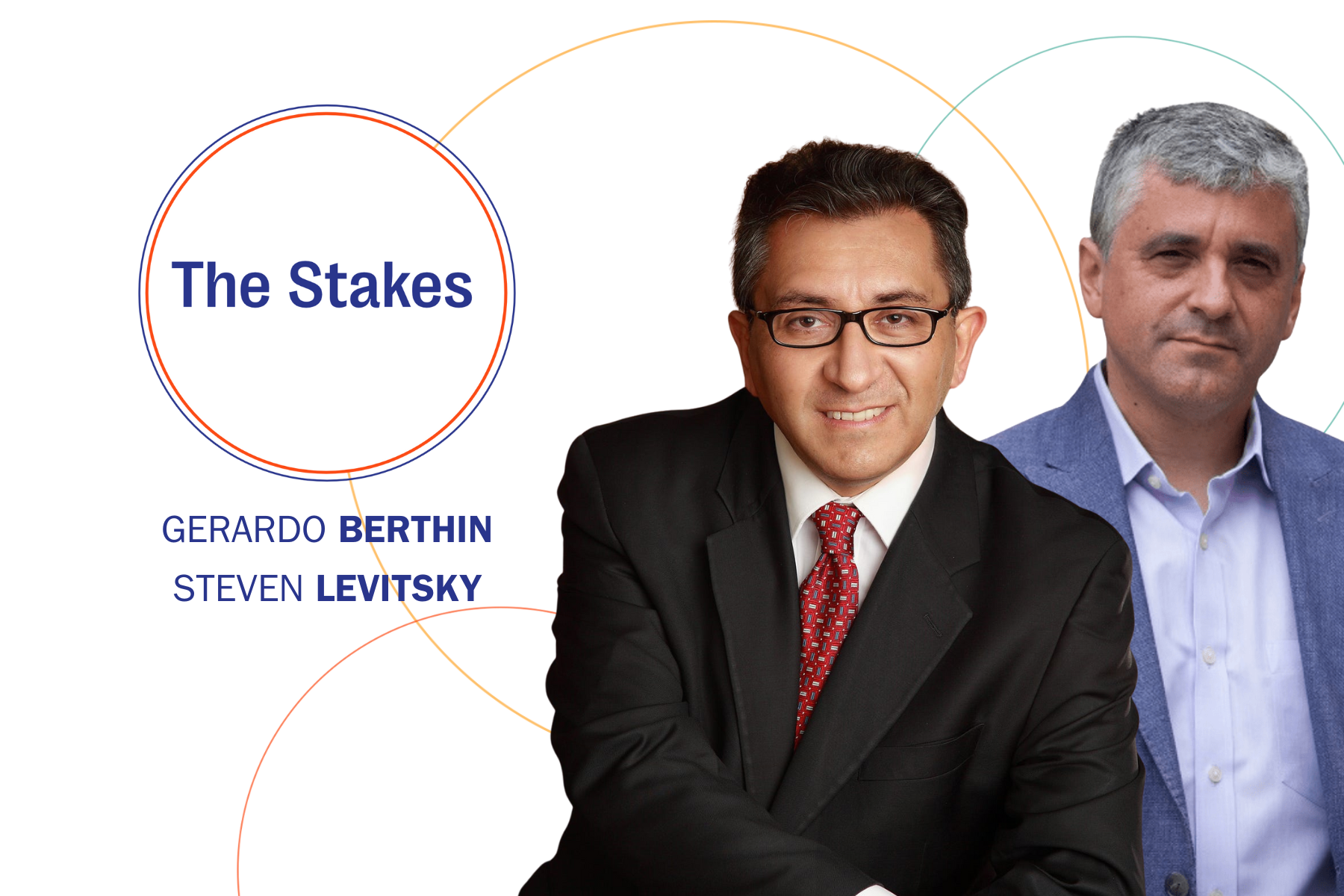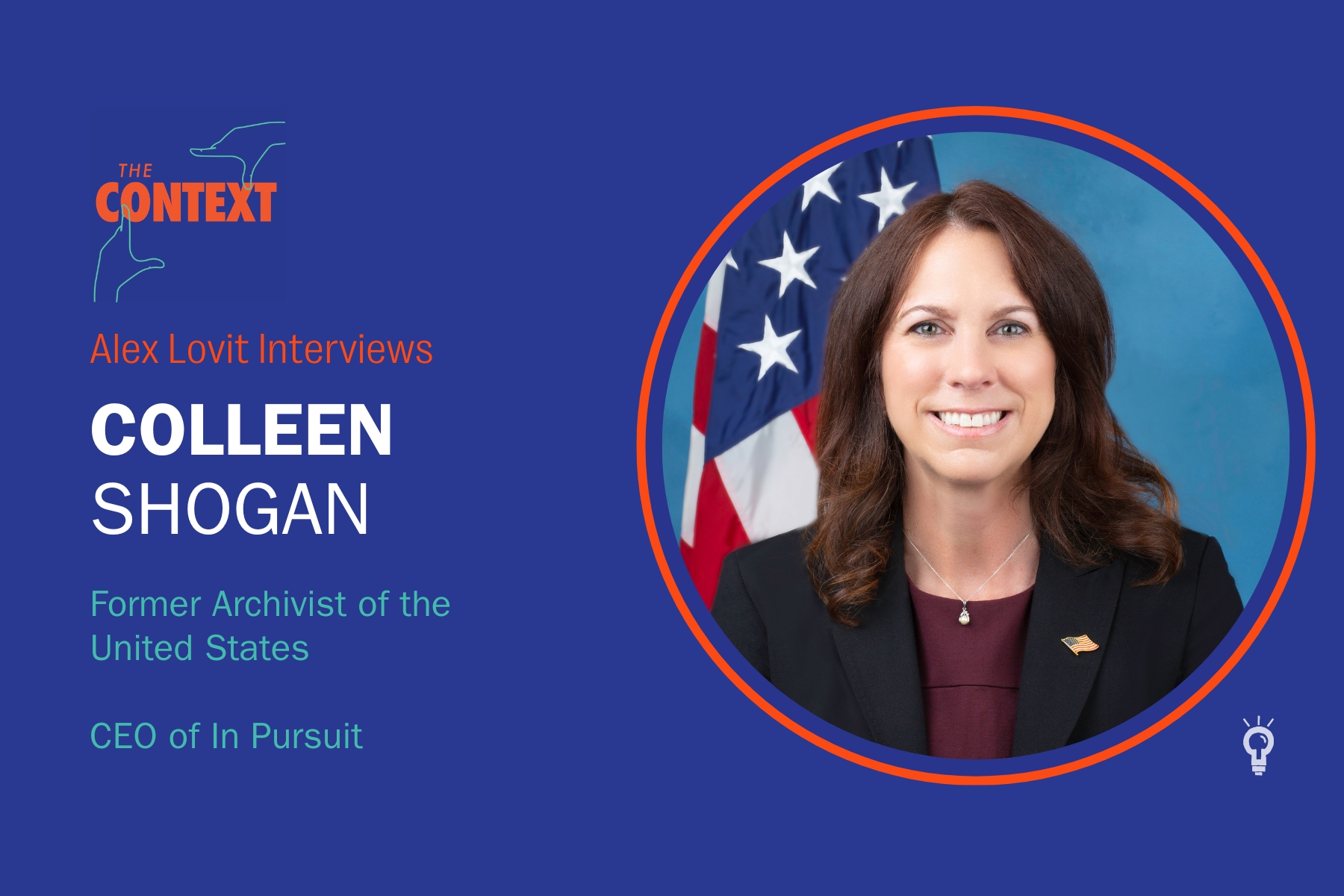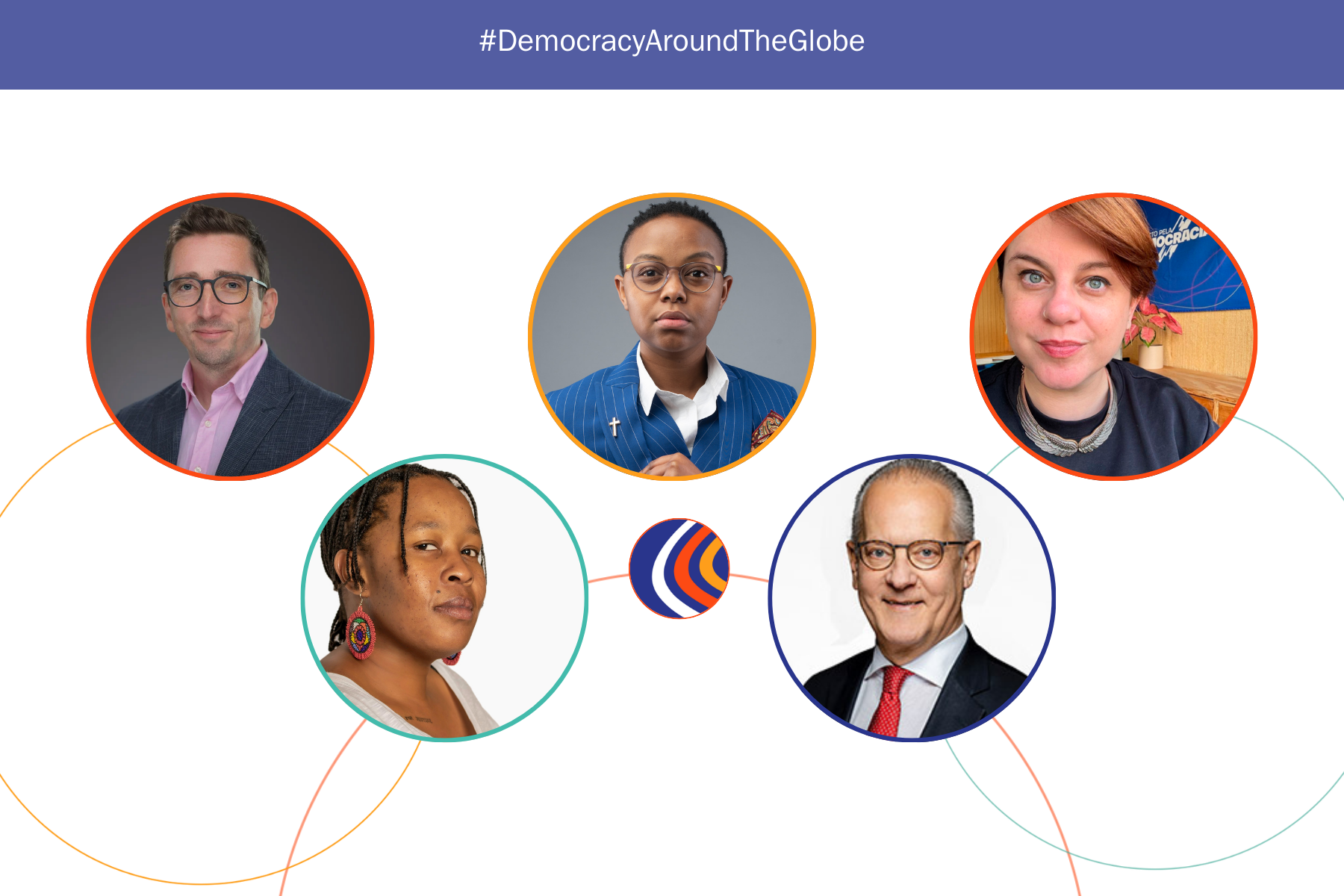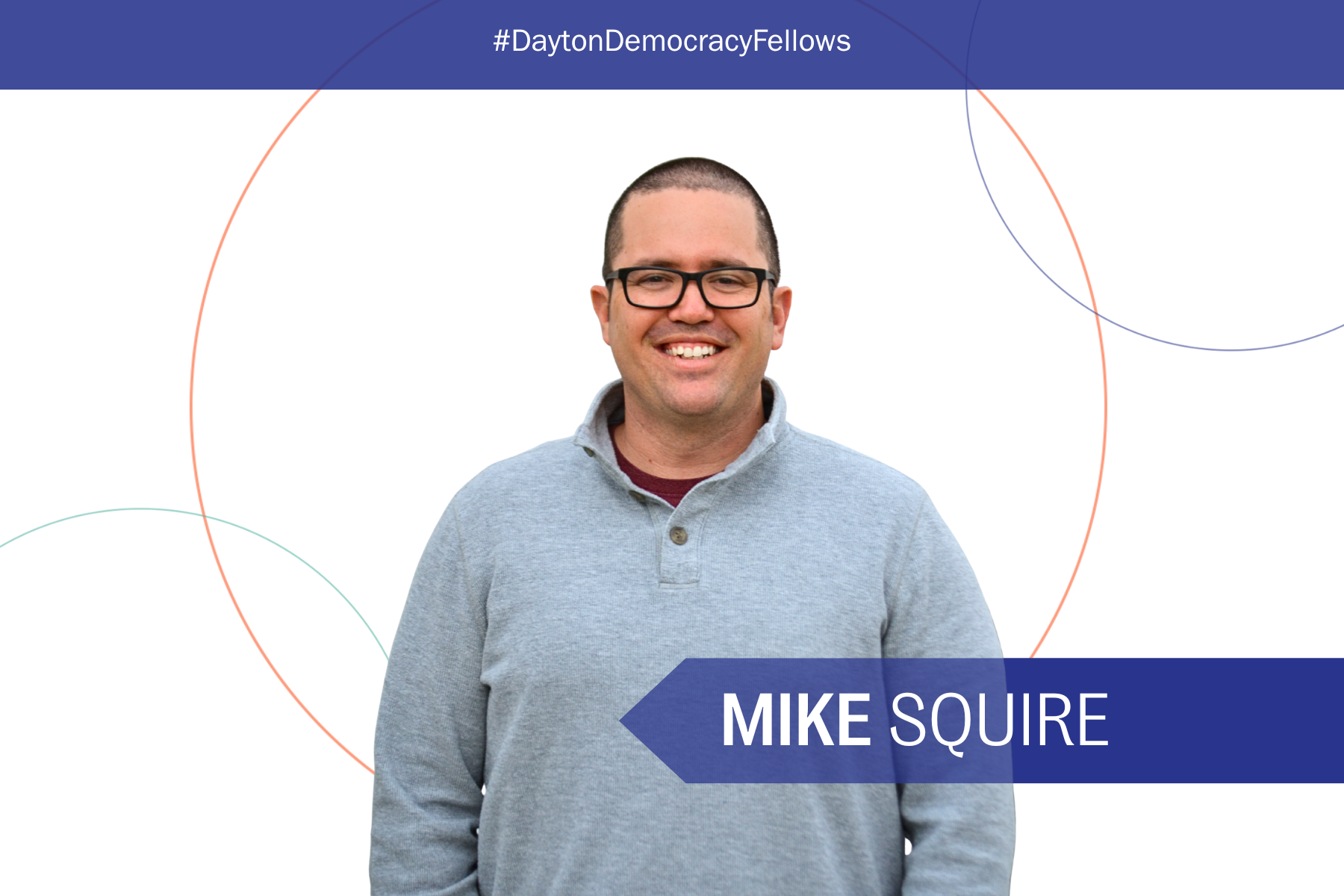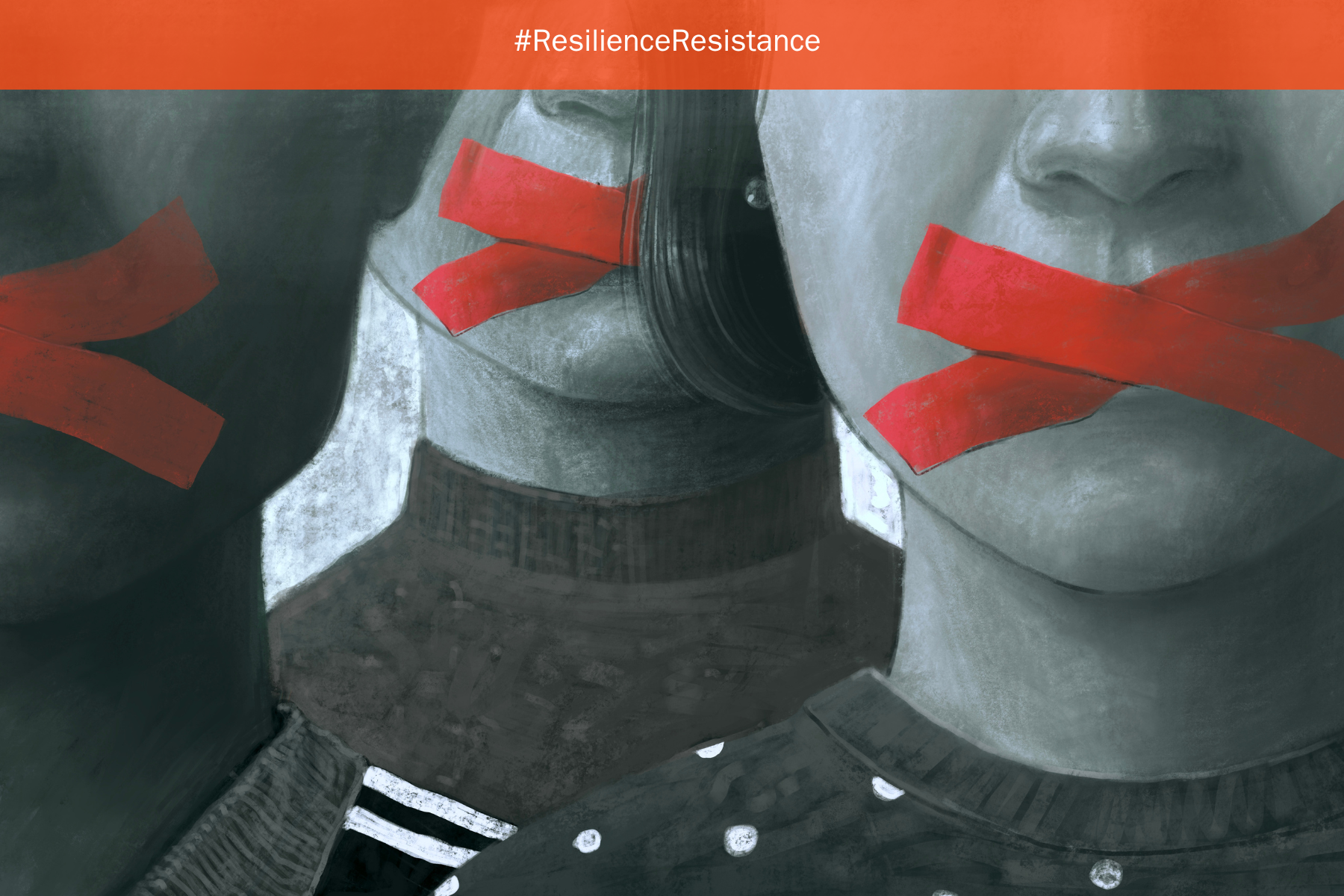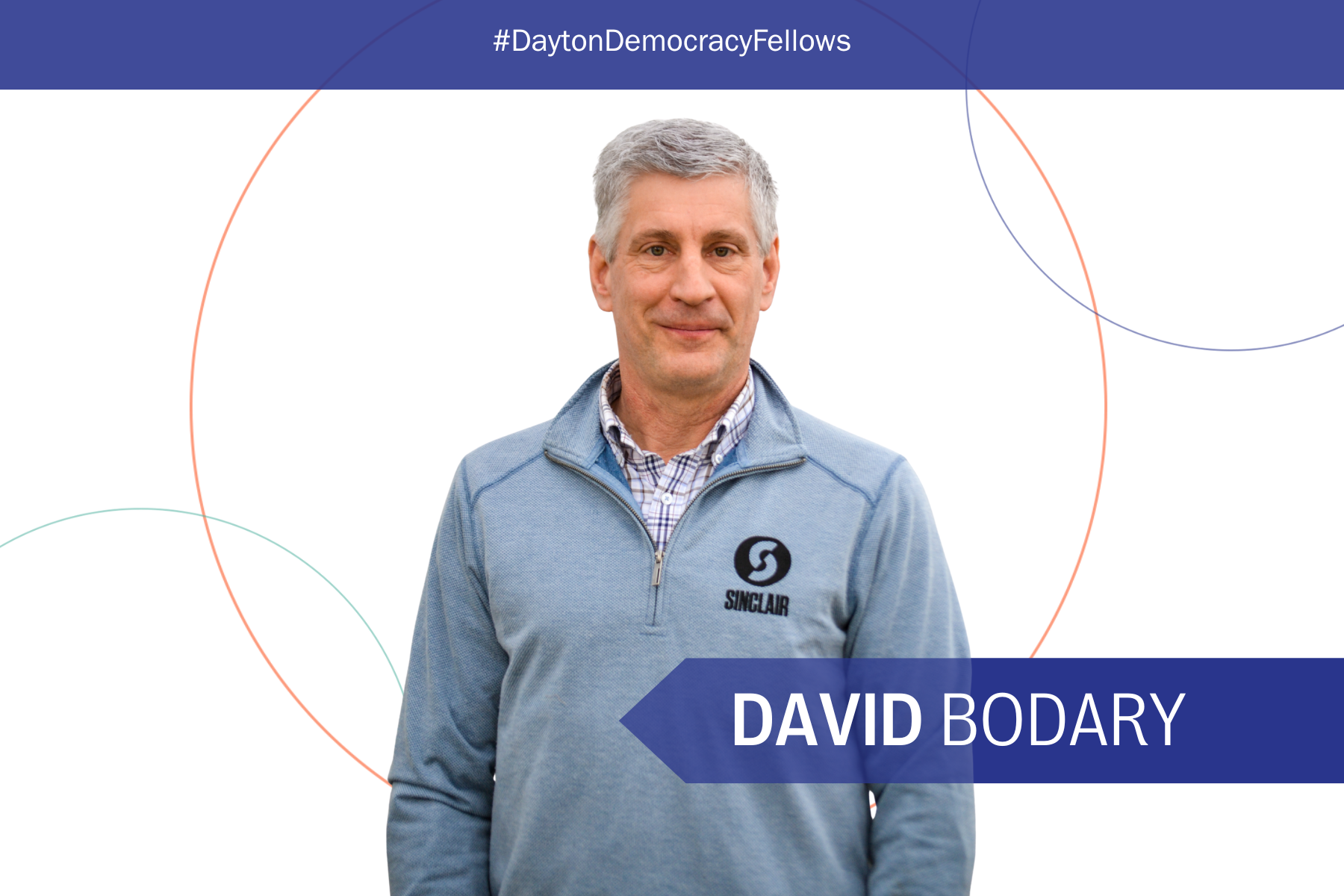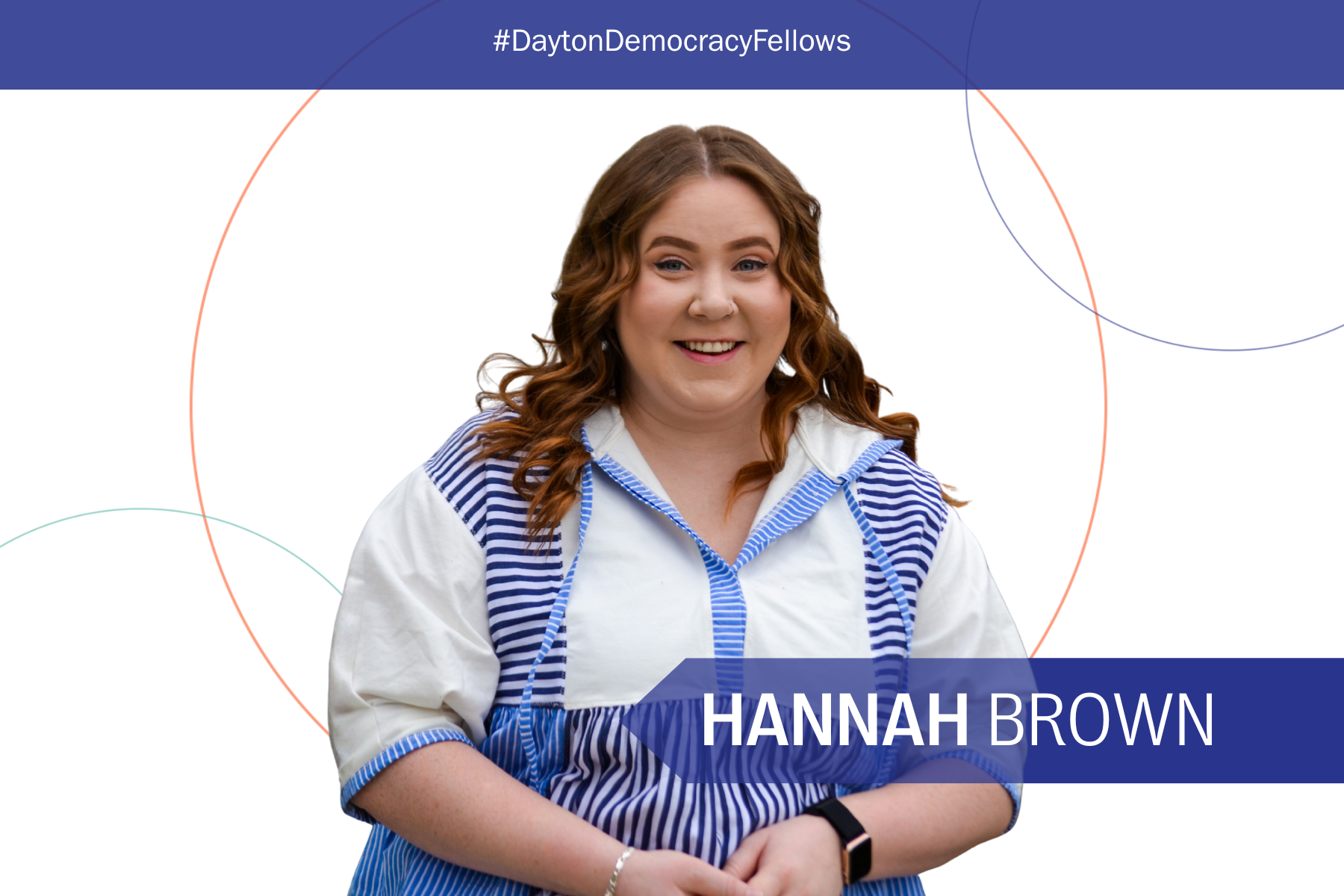Samantha Kennedy Is Prepping the Next Generation of Democracy Advocates
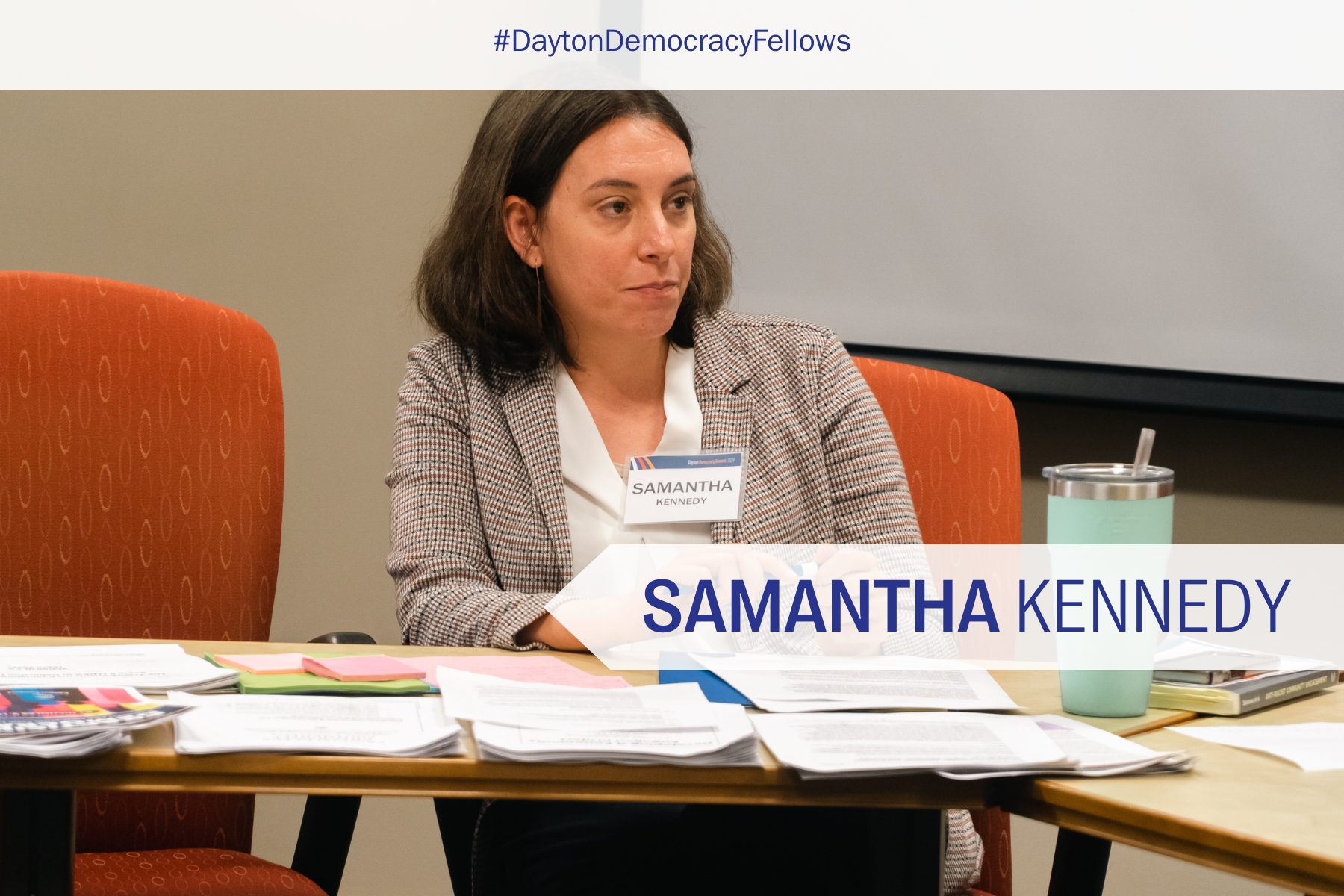
The Kettering Foundation’s Dayton Democracy Fellowship is a one-year program that supports innovative leaders, changemakers, and dreamers who are building movements for inclusive democracy in their communities and in our wider world. This series of articles about the Dayton Democracy Fellows highlights their robust work and the powerful narratives that drive the advancement and defense of democracy.
For University of Dayton’s Director of Grants and Assessment, Samantha Kennedy, democracy starts with building community. Her workplace, the Fitz Center for Leadership in Community is often referred to as “the front porch” of the university where the community can come together. With programs focusing on civic duty, community engagement, and equity, Kennedy and her coworkers strive to create an inclusive, collaborative environment. It makes her recent appointment as a Kettering Foundation Dayton Democracy Fellow a natural fit.
Kennedy is also the director of the Dayton Civic Scholars Program, a three-year program in which students learn about the importance of democracy and becoming active citizens. Throughout the program, students are encouraged to leave the “University of Dayton bubble,” meet with local organizations, and learn how to become community changemakers. In their senior year, students complete a capstone project, addressing a community-identified need alongside a community partner.
“It’s really exciting to see the impacts of [the program]. . . . Whether they major in business, engineering, sociology, or whether they’re community organizers themselves, it’s great to see that kind of shift and thinking—that ‘community first’ mentality,” said Kennedy.
Kennedy believes it is important for those of all majors and identities to get involved in democracy. She said it’s vital to “find one or two things and get involved in your local community, wherever you move, right away. . . . Think about democracy at a local level. If you don’t know your neighbors, that can be a real barrier.”
While Kennedy spends her days teaching about democracy, she does not have one fixed definition for it.
“When you work with college students and you have these conversations with them, it helps me shape and evolve my own definition,” she says. “It often starts with democracy as just voting or getting engaged in some way, then it expands. What does democracy mean at a local level and what does it mean to show up with your community? How do we keep different governmental processes accountable and think about what accountability and accessibility mean?”
Kennedy also cites her own education for this evolution. A triple University of Dayton alum (BA, MA, and MPA), Kennedy also had a social work internship with Catholic Social Services of the Miami Valley’s Refugee Resettlement program and an MPA internship with Montgomery County Homeless Solutions.
“That internship with Refugee Resettlement initially got me out in the community. The internship really opened my eyes, too. What does it mean for someone coming to Dayton, Ohio, from outside of the United States? It taught me a lot about the steps that have to happen or all the opportunities that exist locally to make a community welcoming,” she said.
Kennedy is highly aware of the larger threats being posed to American democracy.
“I think about the state of public education. What are the things that kids are going to be able to be taught in the classroom? I view education very much as a tool of democracy and a foundation of democracy,” she said.
Kennedy believes these foundations of a healthy democracy can be taught at a young age through emotional intelligence, empathy, and listening skills.
“Naming their own emotions and understanding the emotions of others can help build connections. I don’t know that we can have a high functioning democracy without solid community and an understanding of a diversity of experiences,” she says. “Recently, bills across the country seek to impact higher education initiatives. I worry how future bills like these could impact higher education as well as the rest of our culture.”
Despite these threats, Kennedy is highly optimistic for the future of democracy.
“I get to work with young people who really care. It’s really exciting. They are very highly engaged and active. They ask really tough and good questions, and that always gives me hope for the future because I see people who continue to challenge me and really care,” she said.
As a Dayton Democracy Fellow, Kennedy was most excited about forming connections with other fellows who are like-minded individuals interested in community action.
“My favorite part is honestly just the connections when we meet with the other fellows, getting to know what they’re doing and starting to build some connections. I think just having open discussions together, like, ‘What is the state of democracy in Dayton?’ and ‘What are our hopes and visions?’ Having those conversations together . . . is really, really exciting,” she said.
Maura Casey is a former editorial writer for the New York Times and has worked with the Kettering Foundation since 2010.
The Charles F. Kettering Foundation Dayton Democracy Fellowship is a one-year program designed to support innovative leaders, changemakers, and dreamers who are building movements for inclusive democracy in their communities and in our wider world.
